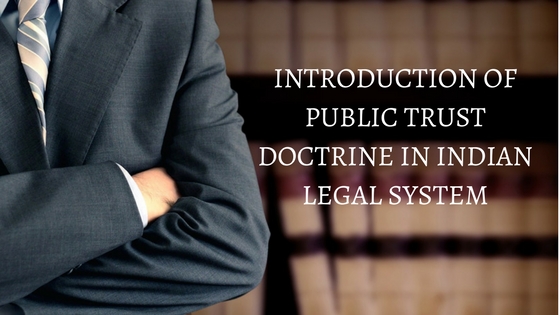Aapka Consultant Judgment Series- In this series, we are providing case analysis of Landmark Judgments of Hon’ble Supreme Court of India.
M.C. Mehta v. Kamal Nath & Ors
[1997] 1 SCC 388, 1996 Suppl. [10] SCR 12
JUDGES: Kuldip Singh and S. Saghir Ahmad
Date of Decision: 13-12-1996
FACTS:-
In this case, the Hon’ble Court took notice of an articles published in Indian Express where it was stated that the State Government had leased the riparian forest land for commercial purposes to a private company when the respondent was the minister in charge of Department of Environment and Forests. It was alleged that company had encroached upon an additional area of land adjoining this leasehold area, which was also later leased out to the company. The company had used earthmovers and bulldozers to turn the course of the river Beas and created a new channel and divert the river’s flow to save the motel from any future floods.
ISSUE:-
Whether Public Trust Doctrine can be applied to Indian legal system to protect the environment under Article 21 of the Constitution?
JUDGMENT:-
The Apex Court took serious note on the news published and upholds that the company interfered with the natural flow of the river by blocking and diverting it to the new route. The area being ecologically fragile and full or scenic beauty should not have been permitted to be converted into private ownership and for commercial gains.
The Hon’ble Court adopted a legal theory known as the “Doctrine of the Public Trust” developed by the ancient Roman Empire, which was founded on the ideas that certain common properties such as rivers, sea- shore, forests and the air were held by government in trusteeship for the free and unimpeded use of the general public. Thus, this doctrine enjoins upon the government to protect the resources for the enjoyment of the general public rather than to permit their use for private ownership or commercial purposes.
The present case illustrates a classic struggle between those members of the public who would preserve our rivers, forests, parks and those entrusted with the administrative responsibilities who, under the pressures of the changing needs of an increasing complex society, find it necessary to encroach to some extent open lands heretofore considered in-violate to change. But this Court has finally came to the conclusion that the plaintiffs could rely on the public trust doctrine which, in the absence of legislature, do not allow to abdicate the natural resources and convert them into private ownership or for commercial use.
The Supreme Court delivered a landmark judgment and established “Doctrine or the Public Trust and “Polluters Pays Principle” in this case for the first time in India. The company was found guilty for damaging the environment and it was directed to pay damages for the restitution of the environment and ecology of the area. Further, Court quashed both the lease transactions with the company on being committed patent breach of public trust for commercial purpose. Hence, this writ petition was disposed of with above mentioned direction.
HELD:-
The Apex Court held that public trust doctrine is a part of common law and can be applied to Indian legal system to protect the environment under Article 21 of the Constitution. Also as far as this case is concerned, the state government as trustee will take over the lease out area and restore it to its natural conditions under Article 48A while applying Article 21 of the Constitution.
To Get Legal Opinion from Advocates/ Legal Experts, Please click here
To Get Legal Opinion from Retired Hon’ble Judges, Please click here












